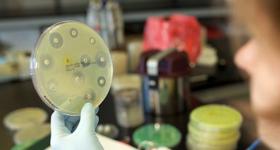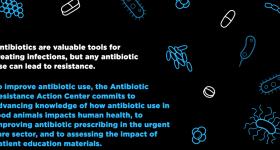ARAC Applauds McDonald's New Global Beef Policy
ARAC staff has been advising McDonald's on a new policy it was creating to limit the use of medically important antibiotics in its beef supply chain.


ARAC Applauds McDonald's New Global Beef Policy
ARAC staff has been advising McDonald's on a new policy it was creating to limit the use of medically important antibiotics in its beef supply chain.

Drivers and Dynamics of Livestock-MRSA CC398 in Pigs and Humans in Denmark
ARAC Director Dr. Lance Price was a co-author on a new study, Drivers and Dynamics of Methicillin-Resistant Livestock-Associated Staphylococcus aureus CC398 in Pigs and Humans in Denmark.

7 On Your Side Tests Find Antibiotic-Resistant Superbug Bacteria on Supermarket Meat
When you buy raw meat in the grocery store, what you're bringing home is often more than dinner.

Seattle doctors use high tech to fight ‘superbugs'
ARAC Director Dr. Lance Price and his colleagues discuss a new tool they are developing to help doctors prescribe the right antibiotics.

ARAC Joins the Global Antimicrobial Resistance Challenge!
Antibiotic resistance is a serious public health threat that demands immediate action from all sectors of society.

Puppies are making people sick — and it’s people’s fault
A new study highlights how antibiotic-resistant bacteria that have infected more than 100 people and have been linked to pet store puppies,

Hurricane Florence Threatens to Spread Hog Poop Over North Carolina
Wired highlights another concern about Hurricane Florence: flooding that could spread pig waste, which carries bacteria like E. coli and Salmonella.

The Hidden Link Between Farm Antibiotics and Human Illness
Wired reports on ARAC's new study, years in the making, that goes further than any other to demonstrate that resistant bacteria can move from animals to humans.

E coli Strain Found in Poultry Linked with Urinary Tract Infections in Humans
Contagion Live highlights how a team led by ARAC has identified a strain of Escherichia coli that may be passed from contaminated poultry to humans.

Strain of E. Coli Spread From Poultry to People
the latest ARAC study highlights how E. coli strains found in fresh chicken and turkey products can cause serious urinary tract infections (UTIs) in people.
